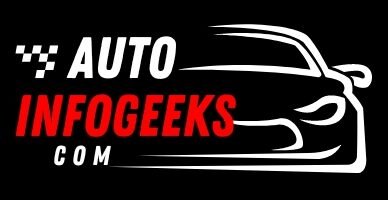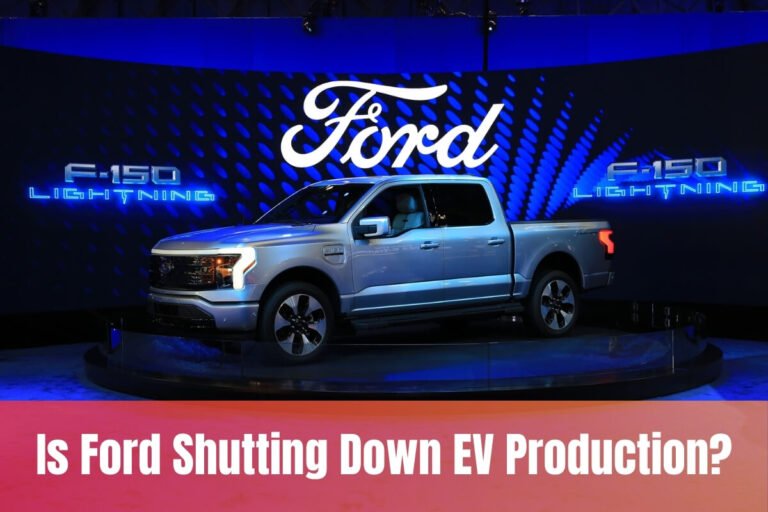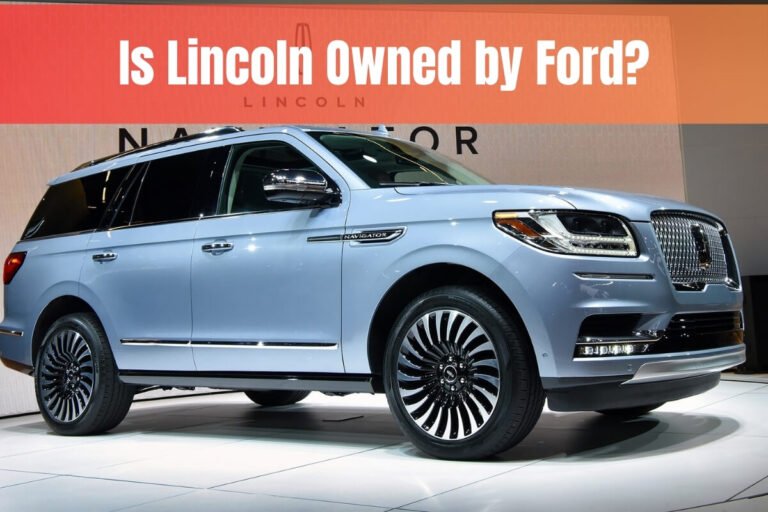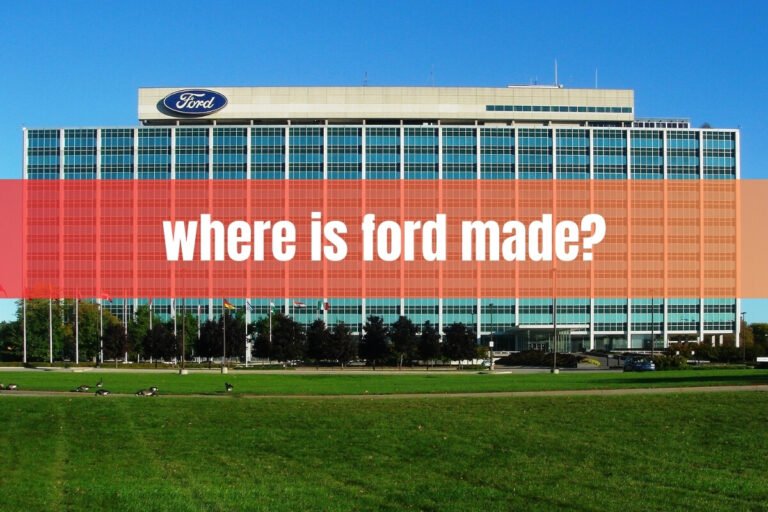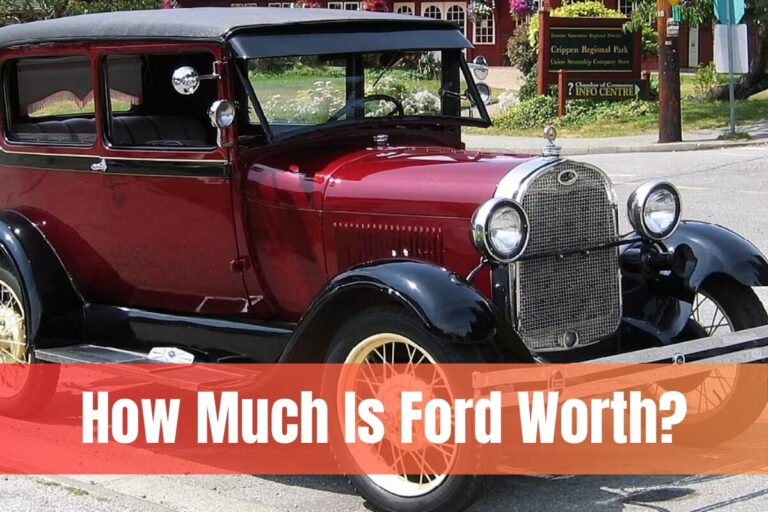what companies does ford own?
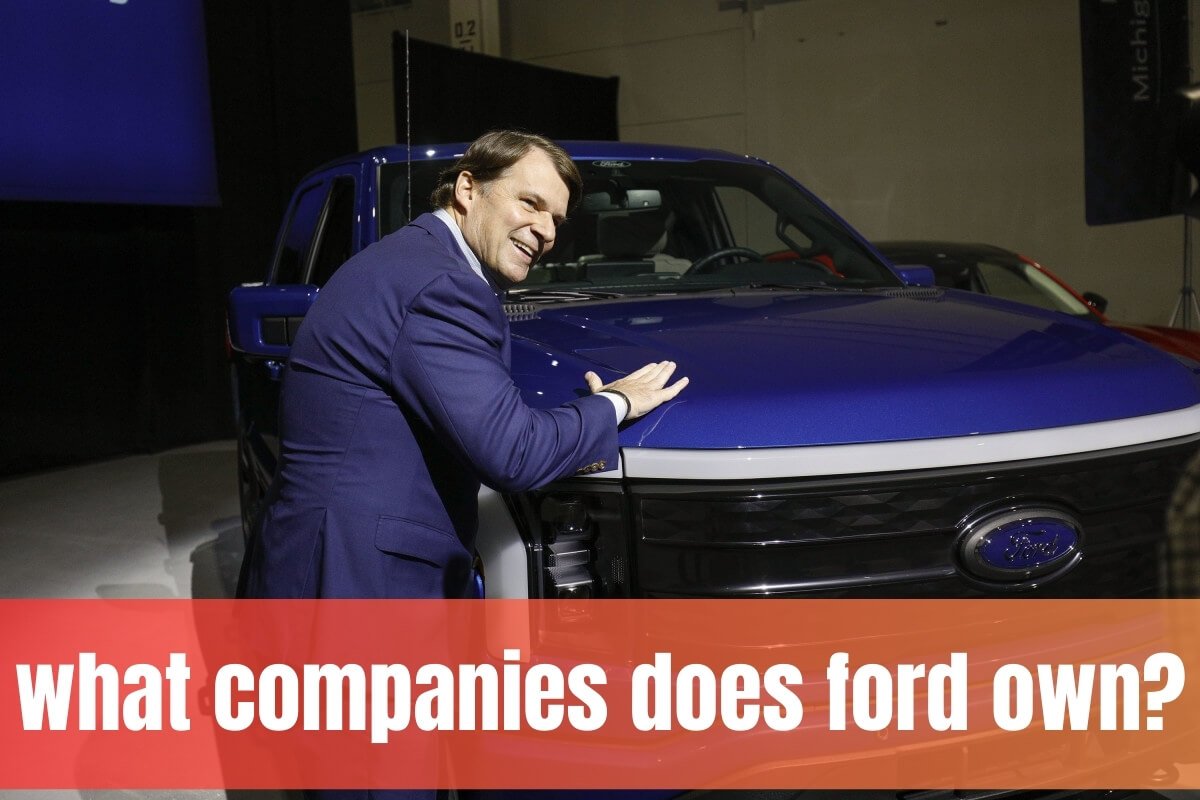
Ford Motor Company, one of the largest and most iconic automakers in the world, has a rich history spanning over a century. Founded in 1903 by Henry Ford, the company revolutionized the automotive industry with groundbreaking innovations like the assembly line. Over the years, Ford has grown into a global powerhouse, owning and operating various companies and brands across multiple segments.
Understanding the companies owned by Ford is crucial for several reasons. It sheds light on the company’s diversification strategies, market reach, and ability to leverage platform sharing and cost savings through shared resources. Additionally, it provides insights into Ford’s future growth plans and potential areas of expansion.
In this comprehensive guide, we’ll explore the companies currently owned by Ford Motor Company, including brief descriptions, historical context, and their significance within Ford’s overall business portfolio. What companies does Ford own? Ford owns several companies, including its flagship Ford brand, Lincoln (luxury vehicles), Troller (off-road vehicles), joint ventures like Changan Ford and Jiangling Ford, as well as subsidiaries like Ford Motor Credit Company, Ford Land, and Argo AI. We’ll dive deep into each of these companies, their roles within Ford’s ecosystem, and how they contribute to the company’s success.
Ford’s Flagship Brand: The Ford Division
The Ford brand is the company’s original and primary division, known for producing a diverse range of cars, trucks, SUVs, and commercial vehicles. From the iconic F-Series trucks and the legendary Mustang to the versatile Explorer and the eco-friendly Fusion Hybrid, Ford has a vehicle to cater to almost every need and preference.
Ford’s lineup includes some of the most popular and iconic models in the automotive industry. The F-150, for instance, has been the best-selling vehicle in the United States for over four decades, thanks to its rugged capability, versatility, and continuous innovation. The Mustang, on the other hand, is a true American muscle car icon, captivating enthusiasts with its powerful engines and aggressive styling.
As the second-largest U.S. automaker, Ford played a pivotal role in revolutionizing the automotive industry. The company’s introduction of the moving assembly line, pioneered by Henry Ford himself, paved the way for mass production and made cars more affordable for the average consumer.
Lincoln: Ford’s Luxury Vehicle Brand
Acquired by Ford in 1922, Lincoln is the company’s luxury vehicle division, named after the 16th President of the United States, Abraham Lincoln. Lincoln has a rich heritage of producing premium vehicles, including luxury sedans, crossovers, and SUVs.
Over the years, Lincoln has established itself as a respected name in the luxury automotive segment. The brand’s lineup includes vehicles like the Navigator, a full-size luxury SUV known for its spacious interior and powerful performance, the Aviator, a mid-size luxury SUV with a sleek design and advanced technology, and the Continental, a flagship luxury sedan that exudes sophistication and comfort.
Lincoln has also played a significant role in American history, having produced several official state limousines for U.S. Presidents. These vehicles are designed to meet the highest standards of security, comfort, and elegance, reflecting Lincoln’s commitment to craftsmanship and attention to detail.
Troller: Ford’s Off-Road Vehicle Subsidiary
In 2007, Ford Motor Company acquired Troller, a Brazilian off-road vehicle manufacturer known for its rugged and capable vehicles. Troller’s flagship model is the Troller T4, a versatile and capable off-road vehicle that has proven its mettle in various rally races worldwide.
The Troller T4 is designed with a purpose-built chassis and a robust body-on-frame construction, making it well-suited for tackling challenging terrains and harsh environments. Its rugged exterior and off-road capabilities have earned it a dedicated following among adventurers and outdoor enthusiasts.
While Troller caters to a niche market, its acquisition by Ford has allowed the company to leverage Ford’s resources and expertise in engineering, manufacturing, and distribution. This strategic move has helped Troller expand its reach and continue developing vehicles that cater to the unique needs of off-road enthusiasts.
Former Ford-Owned Brands and Subsidiaries
Throughout its history, Ford Motor Company has owned and later divested several brands and subsidiaries. Some notable examples include:
- Jaguar: Ford acquired the British luxury car brand Jaguar in 1989 but sold it to Tata Motors in 2008. During Ford’s ownership, Jaguar underwent significant restructuring and introduced popular models like the XF and XK.
- Land Rover: Along with Jaguar, Ford acquired Land Rover in 2000 but later sold both brands to Tata Motors in 2008. Land Rover is renowned for its capable and luxurious SUVs, such as the Range Rover and Discovery.
- Volvo: In 1999, Ford acquired the Swedish luxury automaker Volvo Cars. However, in 2010, Ford sold Volvo to Geely Automobile Holdings, a Chinese automotive company.
- Mercury: Once Ford’s entry-level luxury brand, Mercury was discontinued in 2011 as part of the company’s restructuring efforts and focus on its core brands.
The divestment of these brands allowed Ford to streamline its operations, concentrate its resources on its core strengths, and adapt to changing market dynamics and consumer preferences.
Joint Ventures and Partnerships
Ford Motor Company has established several joint ventures and partnerships with other automakers, primarily to expand its market reach, share development costs, and leverage local manufacturing expertise. Two notable examples are:
- Changan Ford: A 50/50 joint venture between Ford and Changan Automobile, a Chinese automotive manufacturing company. This partnership enables Ford to produce and sell vehicles specifically tailored for the Chinese market.
- Jiangling Ford: A joint venture between Ford and Jiangling Motors, focused on the production of passenger cars in Shanghai, China. This collaboration allows Ford to tap into the rapidly growing Chinese automotive market.
These joint ventures have played a crucial role in Ford’s global expansion strategy, enabling the company to offer locally relevant products while benefiting from the expertise and resources of its partners.
Ford’s Financial Services and Other Subsidiaries
In addition to its core automotive business, Ford Motor Company operates several subsidiaries that support and complement its operations:
- Ford Motor Credit Company: Ford’s financial services arm, responsible for providing financing, leasing, and insurance products to Ford customers and dealers. This subsidiary plays a vital role in facilitating the purchase and ownership of Ford vehicles.
- Ford Land: A real estate development subsidiary focused on managing and developing Ford’s corporate properties and facilities, including its headquarters and manufacturing sites.
- Argo AI: An independent company in which Ford has invested over $1 billion. Argo AI develops autonomous driving technology, which Ford leverages in its vehicles, positioning itself for the future of mobility.
These subsidiaries not only support Ford’s core business but also enable the company to explore new opportunities and stay ahead of the curve in an ever-evolving automotive landscape.
Future Strategies and Acquisitions
As the automotive industry undergoes rapid transformation, driven by factors such as electrification, autonomous driving, and changing consumer preferences, Ford Motor Company is continuously adapting its strategies and exploring new avenues for growth.
One of Ford’s key focus areas is the development and production of electric vehicles (EVs). In 2023, the company established Ford Model e, a separate division dedicated to connected EVs and electric architecture. This move underscores Ford’s commitment to the EV market and its efforts to stay competitive in this rapidly growing segment.
Additionally, Ford has made significant investments in autonomous driving technology through its partnership with Argo AI. As self-driving vehicles become more prevalent, Ford aims to leverage this technology to offer innovative mobility solutions and stay ahead of the curve.
While specific details about future acquisitions or spin-offs remain speculative, Ford’s strategic moves suggest a strong focus on emerging technologies and a willingness to adapt to changing market dynamics. The company may explore partnerships, joint ventures, or acquisitions that complement its core strengths and accelerate its transition towards a more sustainable and technologically advanced future.
Featured Snippet: List of Companies Owned by Ford Motor Company
- Ford (Flagship brand)
- Lincoln (Luxury vehicle division)
- Troller (Off-road vehicle manufacturer)
- Changan Ford (Joint venture with Changan Automobile)
- Jiangling Ford (Joint venture with Jiangling Motors)
- Ford Motor Credit Company (Financial services)
- Ford Land (Real estate development)
- Argo AI (Autonomous driving technology)
In conclusion
Ford Motor Company’s ownership of various companies and brands reflects its commitment to diversification, innovation, and staying ahead of the curve in the ever-evolving automotive industry. From its flagship Ford brand to luxury vehicles under Lincoln, off-road specialists like Troller, strategic partnerships through joint ventures, and forward-looking subsidiaries like Argo AI, Ford has built a comprehensive portfolio to cater to diverse consumer needs and position itself for future growth opportunities.
As the company continues to navigate the rapidly changing automotive landscape, its ability to adapt and embrace emerging technologies will be crucial. Ford’s investments in electric vehicles through its dedicated Model e division and autonomous driving through its partnership with Argo AI demonstrate its commitment to staying at the forefront of innovation.
Moreover, Ford’s strategic acquisitions, divestments, and partnerships have enabled the company to streamline its operations, focus on its core strengths, and leverage the expertise and resources of its partners. This agility and willingness to evolve have been instrumental in Ford’s success over the years.
Looking ahead, it will be interesting to watch how Ford continues to shape its portfolio and explore new avenues for growth. Whether through acquisitions, joint ventures, or internal development, the company’s ability to anticipate and respond to shifting consumer demands and market trends will be critical in maintaining its position as a global automotive powerhouse.
As consumers become increasingly conscious of sustainability, technology, and personalized experiences, Ford’s diverse range of companies and brands positions it well to meet these evolving needs. By leveraging the strengths of each entity within its portfolio, Ford can continue to deliver innovative products and services that captivate audiences worldwide.
In the dynamic and highly competitive automotive industry, Ford Motor Company’s ownership of a diverse array of companies and brands ensures its resilience and adaptability. With a rich history and a forward-thinking approach, Ford is poised to continue its legacy of innovation and leadership, shaping the future of mobility for generations to come.
